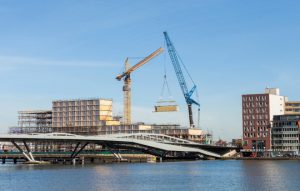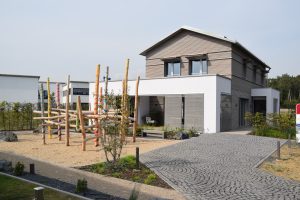Council of Ministers approves bill to amend state building code
In its meeting on 26 May 2020, the Rhineland-Palatinate Council of Ministers approved in principle a draft bill to amend, among other things, the Rhineland-Palatinate Building Code. The amendment of the state building code is intended to implement changes to the so-called model building code that have already been adopted or are in preparation.
The amendments to the State Building Code relate in particular to facilitations for building with wood, which the construction ministers of the federal states agreed on at the last Construction Ministers' Conference, according to the official Press release. "I very much welcome the expansion of the possible applications for wood as a material. Wood is a particularly sustainable, environmentally friendly building material that plays an important role in achieving national and international climate protection goals. Moreover, wood is extremely versatile. Components can be produced for all areas of application, and there are particular advantages, for example, for serial construction as well as for conversion and extension measures. Last but not least, wood often enables cost-effective construction and promotes regional forestry, especially in Rhineland-Palatinate. In Rhineland-Palatinate there are many successful, exemplary projects in timber construction," explained Construction Minister Doris Ahnen.
With the amendment of the State Building Code, the use of timber components in taller buildings (especially multi-storey residential buildings) is now to be made possible under certain conditions. Accordingly, wood can be used as a building material for buildings up to a height of 22 metres; previously the limit was 13 metres.
The draft law now goes into the participation and consultation procedure.
Source: PM from Holzbau Deutschland dated 27.5.2020
Keywords:
DE-News, Wood construction, News Blog RLP, Settlements, Environmental policy, Housing, Housing policy



 Saturday, 21 May 2016, from 11 am - 6 pm
Saturday, 21 May 2016, from 11 am - 6 pm